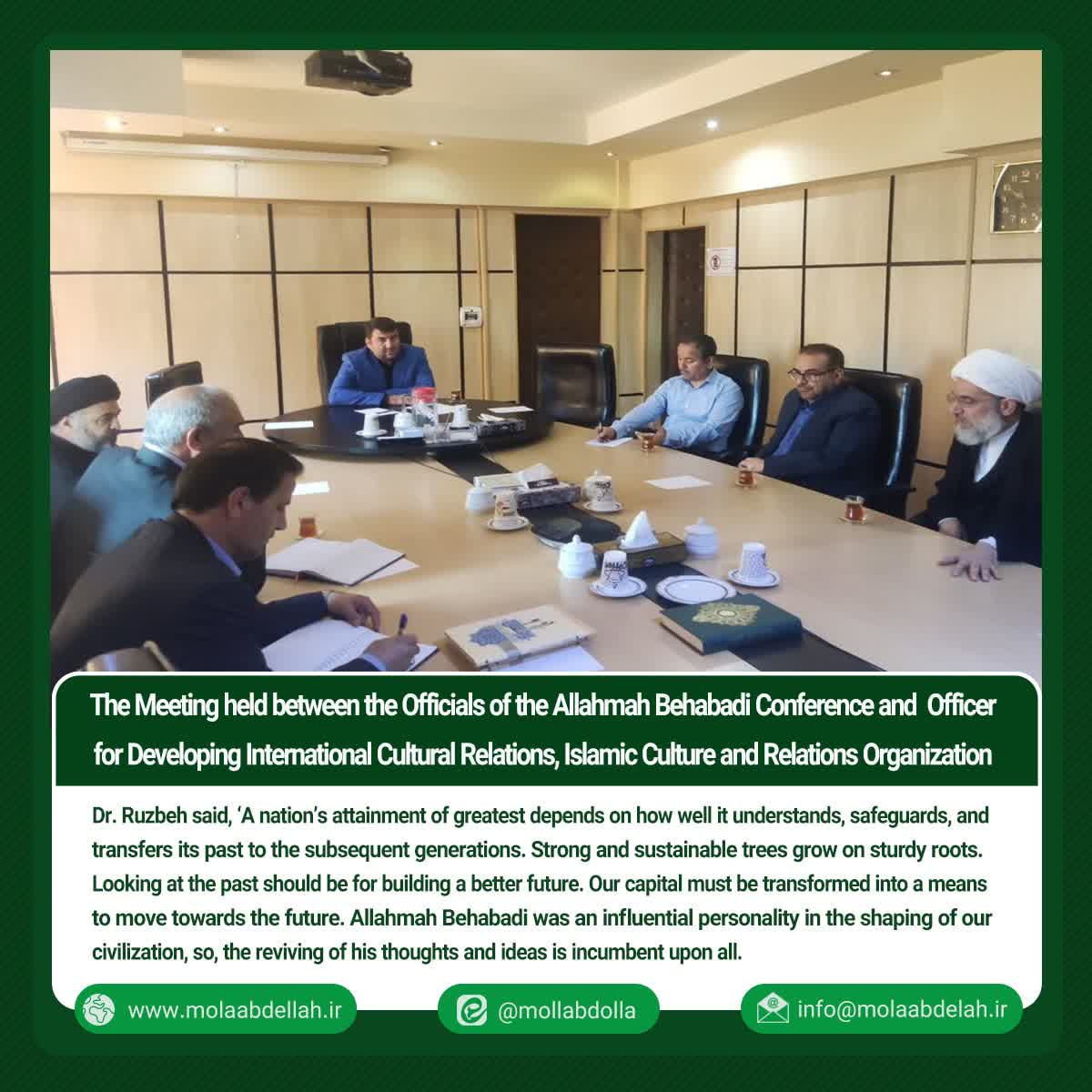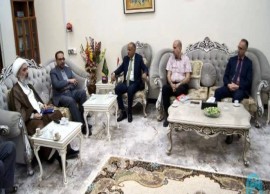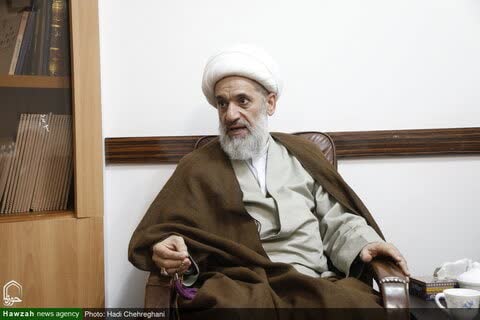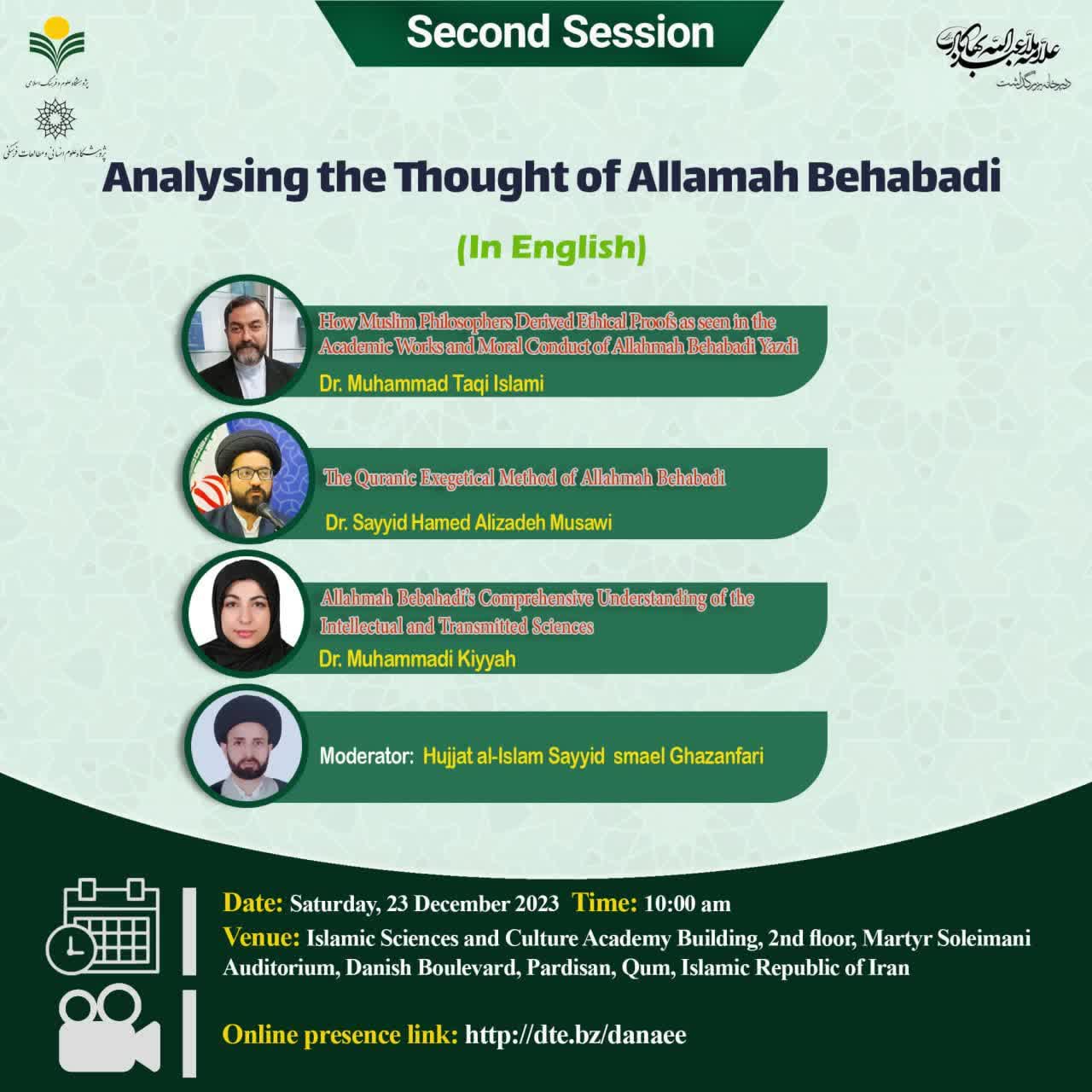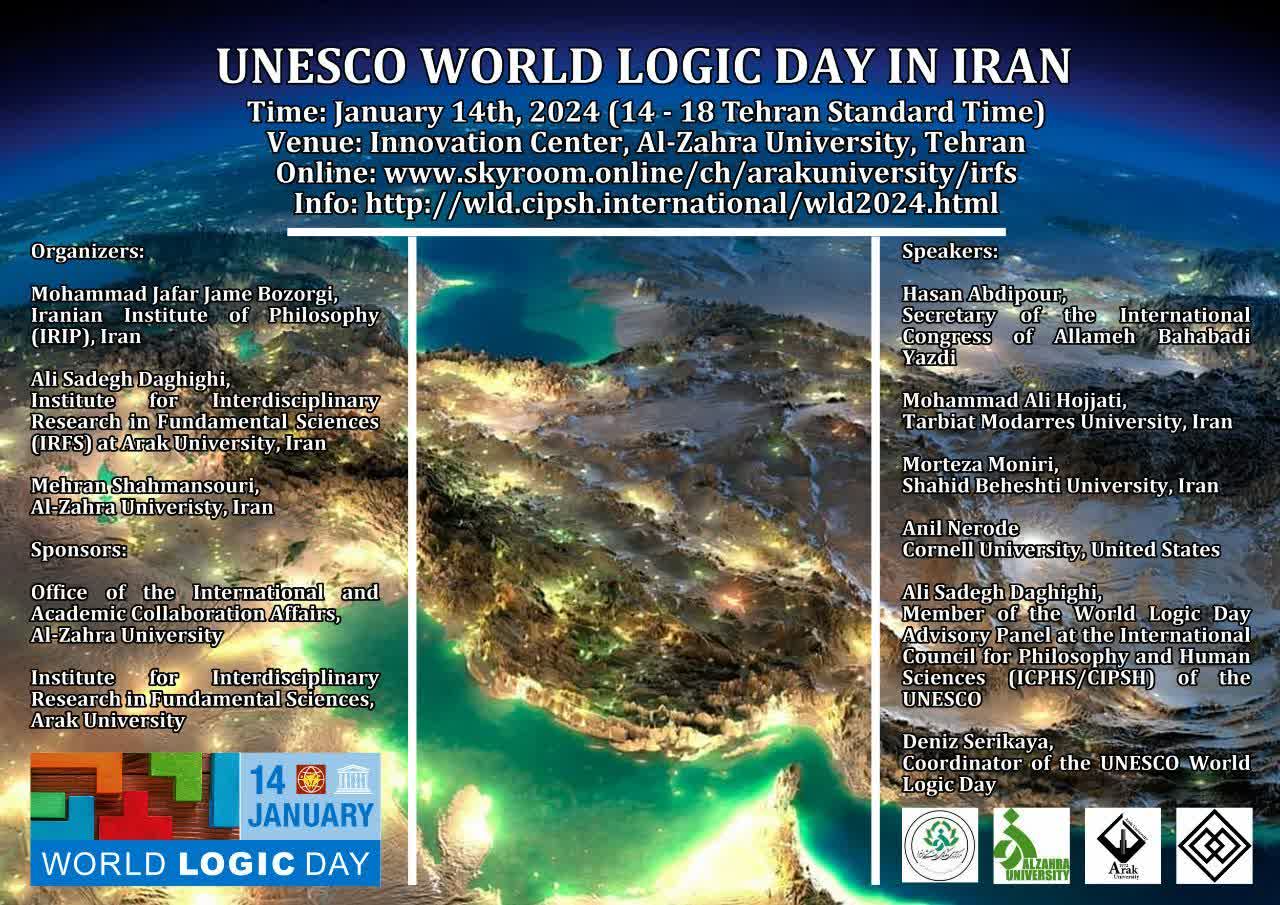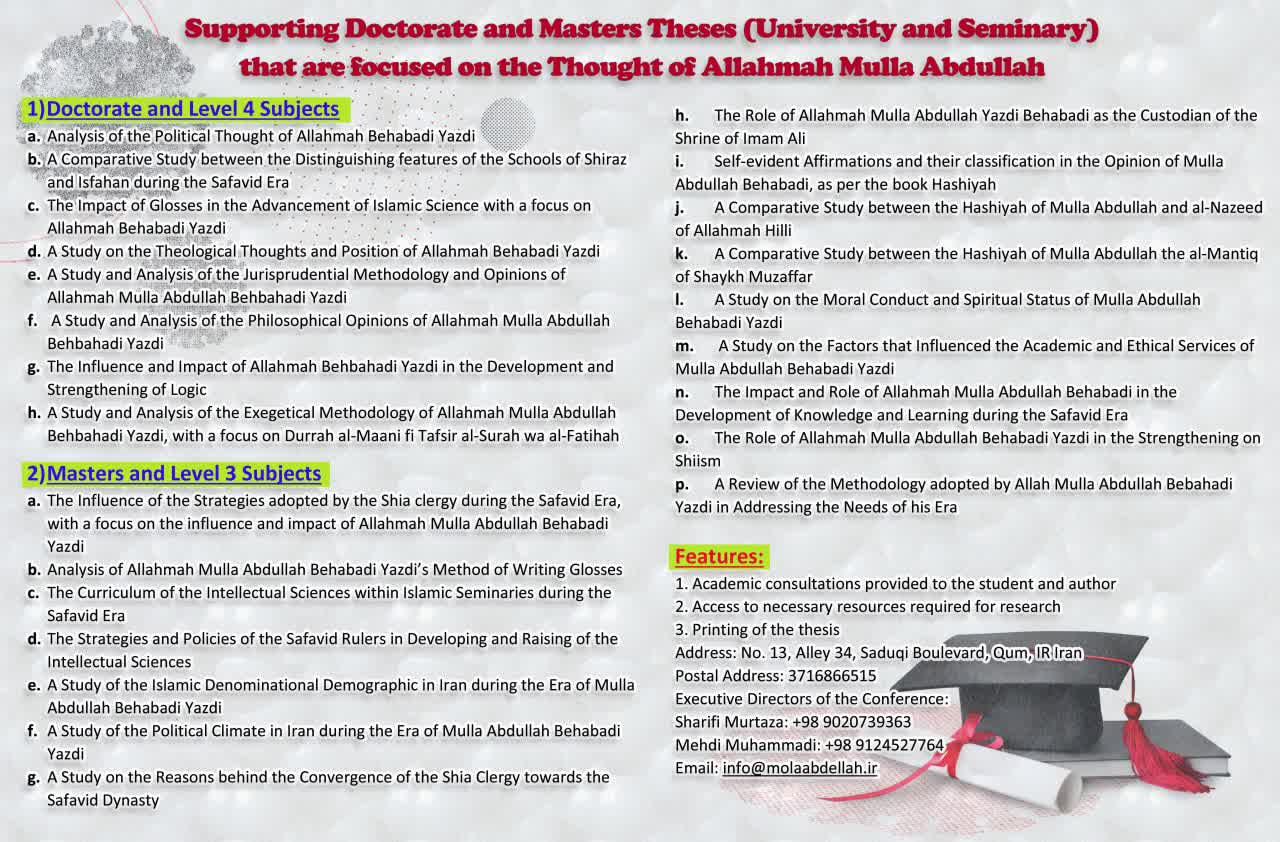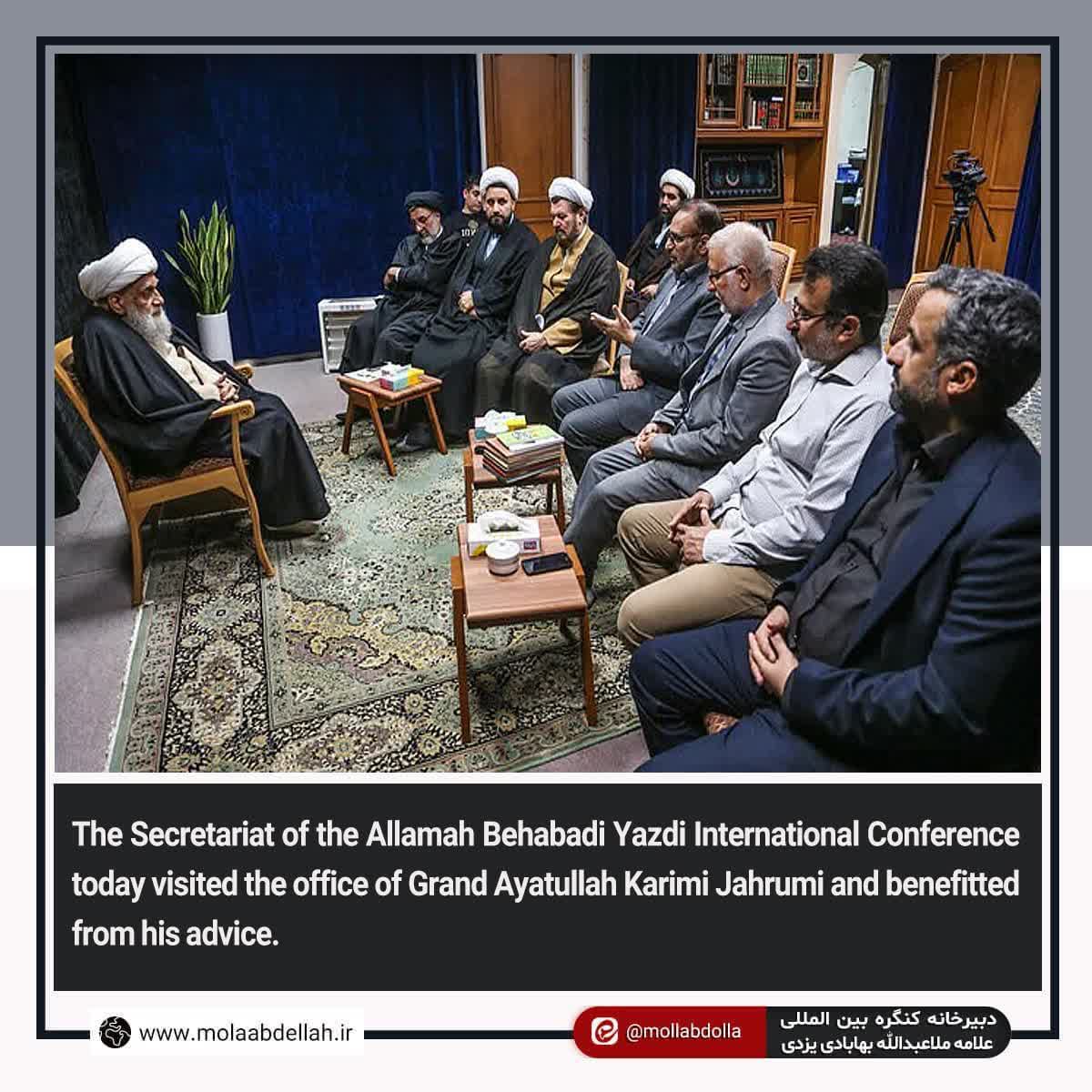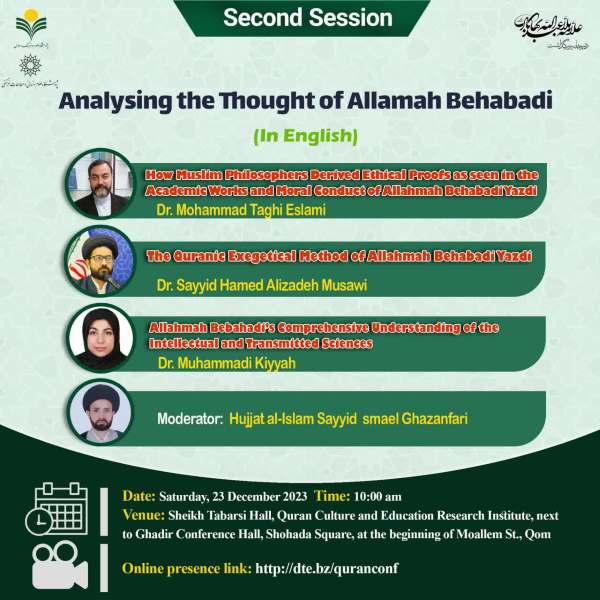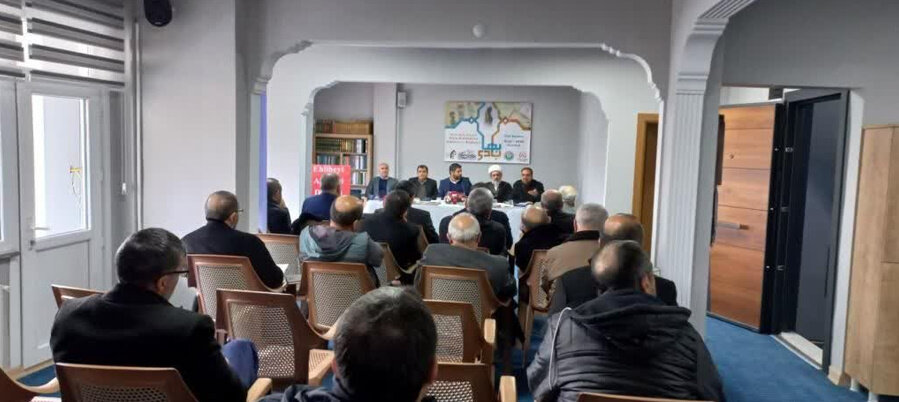The political-social situation of the era of Allameh Bahabadi
Mehdi Mohammadi - Hassan Abdipour[1]
Allameh Mala Abdallah Bahadi Yazdi was one of the educators of the fields of religious sciences and the ideas of the seminary played the most important role in his education.
Of course, Mullah Abdallah is not an exception due to his political-social extension of the 10th century. Allameh's thinking and thoughts actually represent the ruling spirit of the Shiite world. People like Mala Abdallah Yazdi, Mohagheg Karki, Sheikh Baha'i, etc. find more friends among the masses of people than those who were not chronologists and did not understand the philosophy of jurisprudence properly. And they questioned the approach and political thought of scholars like Mohaghegh Karki and his students, in which madrassa should we look for the pure thoughts and revolutionary determination of Allamah Bahadi, and in which seminary scholar's record can his social movements be observed. What made Mullah Abdullah as the leader of the religious and cultural activities of the Shiite world was the scholastic backgrounds and historical experiences and the inherent intelligence of the Shiite scholars who helped in the establishment of Shiism in historical periods and golden opportunities and its civilizational capacities. They operated.
Allameh's presence in Utba Alawieh as the cultural center of the Shiite world provided opportunities for global communication for the Shiite school.
Keywords: civilization, thought, politics, governance, Shiism
Introduction
The formation of the Safavid Empire is the result of the developments that took place in Iran after the Mongol attacks. The continuous attack of the Mongols left many parts of Iran in ruins. Rapid population decline, successive famines, lack of social security, and the loss of central authority had made political and social conditions chaotic. Politically, the attacks of the Mongols created a long period of disintegration and the weakness of the central power, which lasted until the rise of the Safavids.
When the Safavids came to power, our country did not have a single and powerful government and was divided and divided. At that time, the rulers of different parts of Iran were at war with each other. Because of this, the security and peace of the cities and villages were lost and the affairs of the country were disrupted. At the same time, there were governments in Iran's neighborhood that were thinking of expanding their territory. including the Ottoman Empire, which increases its territory with successive attacks on neighboring lands. The Ottoman sultan considered himself the caliph of the Muslims and was also greedy for Iran. In the north-east of Iran (Across the Nile), the Uzbeks had gained power and were rushing to the borders of Iran.
Allameh Bahadi and political situation
Mala Abdallah Yazdi was born in Diarizd, Bahabad region during the formation of the Safavid government, at the beginning of the 10th Koran, and died in Najaf Ashraf in 981. So; He was a contemporary of the first period of Safavid rule, that is, during the reign of Shah Ismail (907-930), Shah Tahmasb (930-984), and apparently he spent most of his life during the reign of Shah Tahmasb.
In order to better understand the political situation of the era of Allameh Bahabadi Yazdi, it is necessary to mention that more than the coming to power of the Safavid government
The political situation of Iran and the world during the rule of the two first Safavid kings, which coincides with Mullah Abdullah, is subject to many ups and downs. On the one hand, after many centuries, when the land of Iran lacked a powerful and unified central government and was practically considered a part of the territories of the Umayyad and Abbasid caliphs, or witnessed the dominance of the predatory Mongols and Timurids and other foreign encroachments, in the shadow The efforts of Shah Ismail and the armed Qazalbashans under his command had an independent and powerful central government, which was a problem for some of the powerful neighbors and the Portuguese colonists based in the region who controlled the southern waters of the country, as well as for the Uzbeks and Russians, who are prominent powers in the world. They were considered at that time, it was considered as an increasing danger. This feeling of danger was also a right feeling; Because we will soon witness the emergence of bloody and frequent conflicts between the Safavid government and each of the aforementioned foreign power elements.
According to historical sources, at the beginning of the 10th century of Hijri, in Armenia, Alvand Mirza Aq Qoyunlu ruled and in Ajam, Sultan Murad Aq Qoyunlu ruled. In Persia, Yazd, Kerman, Arab Iraq and Diyar Bakr, a number of princes of Agh Quyunlu ruled independently. In Khuzestan, power was in the hands of the Mashasha family. And in Abargu, Kashan, Semnan and Sistan, independent amirs ruled. More than ten dynasties ruled in Mazandaran. There were three other local governments in Gilan, in Lahijan, Biye Pish and in Rasht, Bihaps and Talesh. In Khorasan, Afghanistan, and Turkmenistan, the Timurid Sultan government ruled firmly. In Balkh and Kandahar, there were also independent amirs who followed Sultan Hussein only in appearance.[2]
Iran's independence during the era of Shah Ismail (907-930)
Shah Ismail Safavi, in a situation where foreigners made this auspicious system their home and did not give in to any oppression and oppression against Iran and Iranians, by taking advantage of the oppression of Shiites throughout history and inciting Shiites in all parts of the country and by claiming to represent the Imam Asr (Ajla Allah Ta'ala Al-Farja Al-Sharif) and by using the culture of anti-tyranny of Shia, by forming a powerful and orderly and large army composed of Qazalbash people.
was, he rebelled against the foreigners and in a short period of time annexed large parts of Iran that had been separated during the past periods and ages and set his eyes on the possessions of the prominent and powerful colonialists in the region. His tactic, which also brought significant success, was to create division in the united ranks of foreign enemies, who, by making a formal and temporary peace treaty with one front, suppressed the other front and then attacked the previous front.

